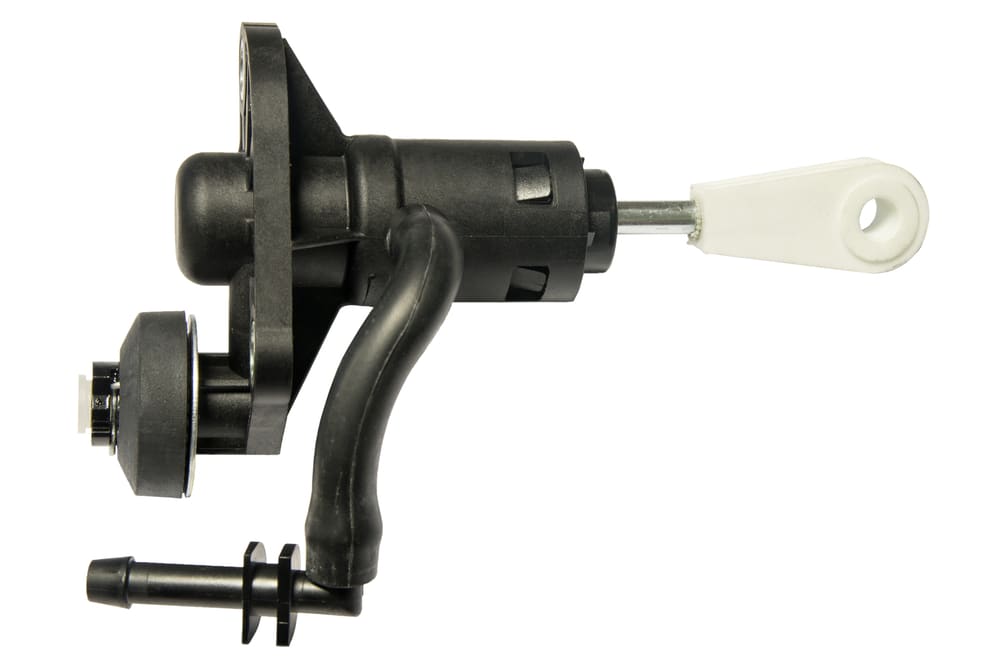

A clutch master cylinder is a component found on vehicles equipped with manual transmission, and serves as the pump for the hydraulically operated clutch system. When the clutch pedal is pressed, the clutch master cylinder pushes fluid through the system down to the clutch slave cylinder so that it may disengage the clutch. As they are hydraulic in nature, clutch master cylinders are often prone to issues with leaks that will interfere with its ability to displace fluid. When the clutch master cylinder has problems, it can lead to issues with the clutch pedal and shifting gears. Usually a bad or failing clutch master cylinder will produce a few symptoms that can notify the driver that a potential problem has occurred and should be serviced.
1. Low or dirty clutch fluid
One of the first symptoms commonly associated with a potential problem with the clutch master cylinder is low or dirty fluid in the reservoir. Dirty fluid can be caused by the seals inside the master cylinder breaking down due to wear and old age and contaminating the fluid. Aging seals are also increasingly prone to leaks as time goes on. Low fluid may be a symptom of a potential leak somewhere in the system, either at the clutch master or perhaps slave cylinder.
2. Hard to shift
Another symptom commonly associated with a bad or failing clutch master cylinder is difficulty shifting. The clutch master cylinder is hydraulic in nature and is therefore prone to internal leaks that can interfere with it’s ability to properly displaced fluid. If the master cylinder is not able to properly create pressure, it will not be able to disengage the clutch properly when the pedal is pressed. This may lead to grinding the gears when shifting, and possibly even a transmission that pops out of gear.
3. Abnormal clutch pedal behavior
Abnormal pedal pressure is another symptom of a potential problem with a bad or failing master cylinder. If the cylinder develops any internal issues, it will directly affect the feel of the pedal. A leaky cylinder may cause the pedal to feel mushy or spongy, and in more severe cases, will lead to a pedal that will sink to the floor and stay there when depressed.
The clutch master cylinder is an important component and if it develops any problems, they can quickly lead to issues that affect the overall drivability of the vehicle. If your vehicle is displaying any of the symptoms above, or you suspect that your master cylinder may be having a problem, have the vehicle inspected by a professional technician, such as one from YourMechanic, to determine if the car will need a replacement clutch master cylinder.



